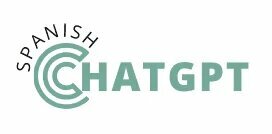In an age where technology shapes every aspect of our lives, conversational AI has emerged as a transformative force. Among the leaders in this field is ChatGPT, an AI model developed by OpenAI that acts as a conversational partner capable of understanding and generating human-like text. From casual conversations to complex inquiries, ChatGPT is changing the way we interact with machines, making technology more accessible and engaging.
The Architecture Behind ChatGPT
ChatGPT is built on the Generative Pre-trained Transformer (GPT) architecture, a groundbreaking model that utilizes deep learning techniques to process and generate text. It has been trained on a vast corpus of text data, enabling it to understand context, tone, and nuances in language. This extensive training allows ChatGPT to produce coherent, relevant, and contextually appropriate responses, making conversations feel more natural and engaging.
What sets ChatGPT apart is its ability to generate text based on user input, adapting its responses to fit the flow of the conversation. This adaptability is crucial for effective communication, as it allows users to explore various topics and engage in dialogue that feels genuine. Whether you’re seeking information, brainstorming ideas, or simply having a chat, ChatGPT can serve as an effective conversational partner.
Applications in Everyday Life
Personal Assistance
One of the most compelling uses of ChatGPT is in personal assistance. Users can leverage this AI to manage their daily tasks, such as scheduling appointments, setting reminders, or even drafting emails. By simply conversing with ChatGPT, individuals can streamline their workflows and increase productivity. The convenience of having a reliable AI partner to handle mundane tasks frees up time for more important activities, enhancing overall efficiency.
Educational Support
ChatGPT is also making significant strides in education. Students can utilize this AI as a study aid, posing questions on various subjects and receiving detailed explanations. Whether it’s mathematics, history, or science, ChatGPT can clarify concepts and provide additional resources for learning. This personalized approach to education allows students to engage with material at their own pace, making learning more interactive and enjoyable.
Moreover, educators can use ChatGPT to generate lesson plans, quizzes, and even creative writing prompts. This not only saves time but also enriches the educational experience, allowing teachers to focus more on student engagement rather than administrative tasks.
Creative Collaboration
In creative fields, ChatGPT acts as a powerful tool for brainstorming and idea generation. Writers, artists, and marketers are using AI to enhance their creative processes. For instance, a writer struggling with a plot can discuss ideas with ChatGPT, which can offer suggestions, plot twists, or character development concepts. This collaborative approach can inspire new directions and enrich the creative process.
Similarly, marketers can leverage ChatGPT to craft compelling ad copy or social media posts. The AI’s ability to generate engaging content quickly can help teams brainstorm and refine their marketing strategies, ultimately leading to more effective campaigns.
Enhancing Customer Experience
ChatGPT is also revolutionizing customer service across industries. Businesses are increasingly integrating AI-driven chatbots powered by ChatGPT to handle customer inquiries. These systems provide instant responses to common questions, significantly reducing wait times and improving customer satisfaction. The AI can assist with everything from technical support to product recommendations, creating a more efficient service experience.
Furthermore, ChatGPT’s multilingual capabilities enable businesses to cater to a global audience. By offering support in multiple languages, companies can engage with customers from diverse backgrounds, breaking down communication barriers and enhancing the overall customer experience.
Ethical Considerations
While the benefits of ChatGPT are numerous, its rise also prompts important ethical considerations. Issues related to bias, misinformation, and privacy are central to discussions about AI technology. ChatGPT is trained on a vast amount of data, and if that data contains biases, the AI may inadvertently perpetuate them. OpenAI actively works to mitigate these risks by refining its training processes and encouraging user feedback to improve the model.
Additionally, transparency is vital when using AI tools. Users should be aware that while ChatGPT can provide valuable insights, it is not infallible. Critical thinking and fact-checking remain essential, particularly when the AI is used for sensitive topics such as health, law, or finance.
The Future of Conversational AI
As AI technology continues to evolve, the future of conversational agents like ChatGPT looks promising. Ongoing advancements in natural language understanding and generation will lead to even more sophisticated interactions. Future versions of ChatGPT may incorporate improved contextual awareness, enabling it to engage in more meaningful conversations that adapt to user preferences and emotional cues.
Moreover, the integration of voice recognition and synthesis could enhance the user experience, allowing for more fluid interactions. Imagine having a virtual assistant that not only responds in text but also engages in voice conversations, creating a more human-like experience.
Conclusion
Exploring ChatGPT reveals a world of possibilities for enhancing our daily lives. As an AI conversational partner, it offers support in personal tasks, educational pursuits, creative endeavors, and customer service. While challenges related to ethics and misinformation remain, the ongoing commitment to responsible AI development ensures that these issues are addressed.
As we embrace the capabilities of ChatGPT and other conversational AI technologies, we stand on the brink of a new era in human-computer interaction. The potential for collaboration between humans and AI is vast, promising to enhance productivity, creativity, and overall quality of life. By understanding and utilizing ChatGPT effectively, we can harness the power of AI to enrich our experiences and foster deeper connections in an increasingly digital world.



